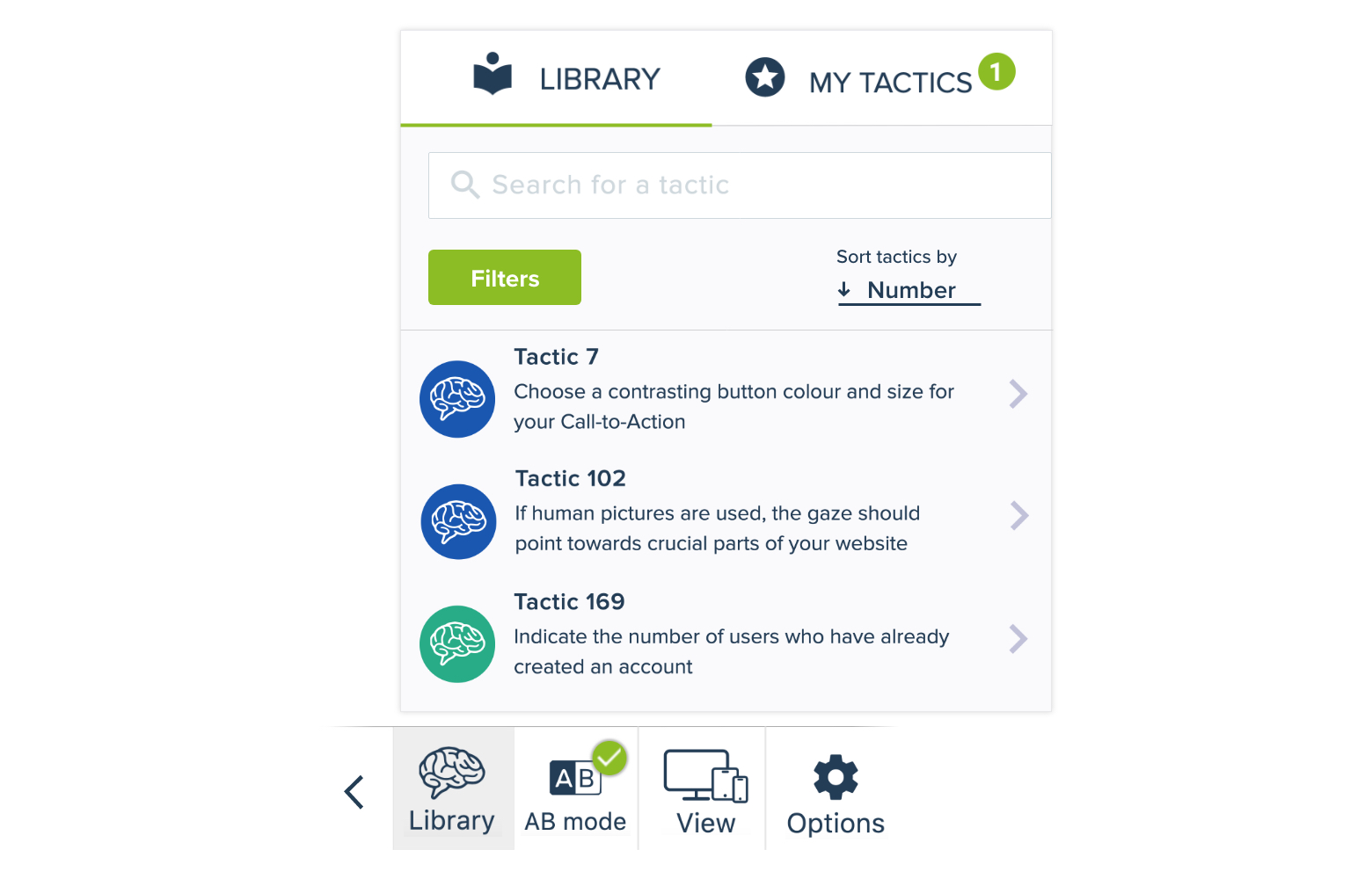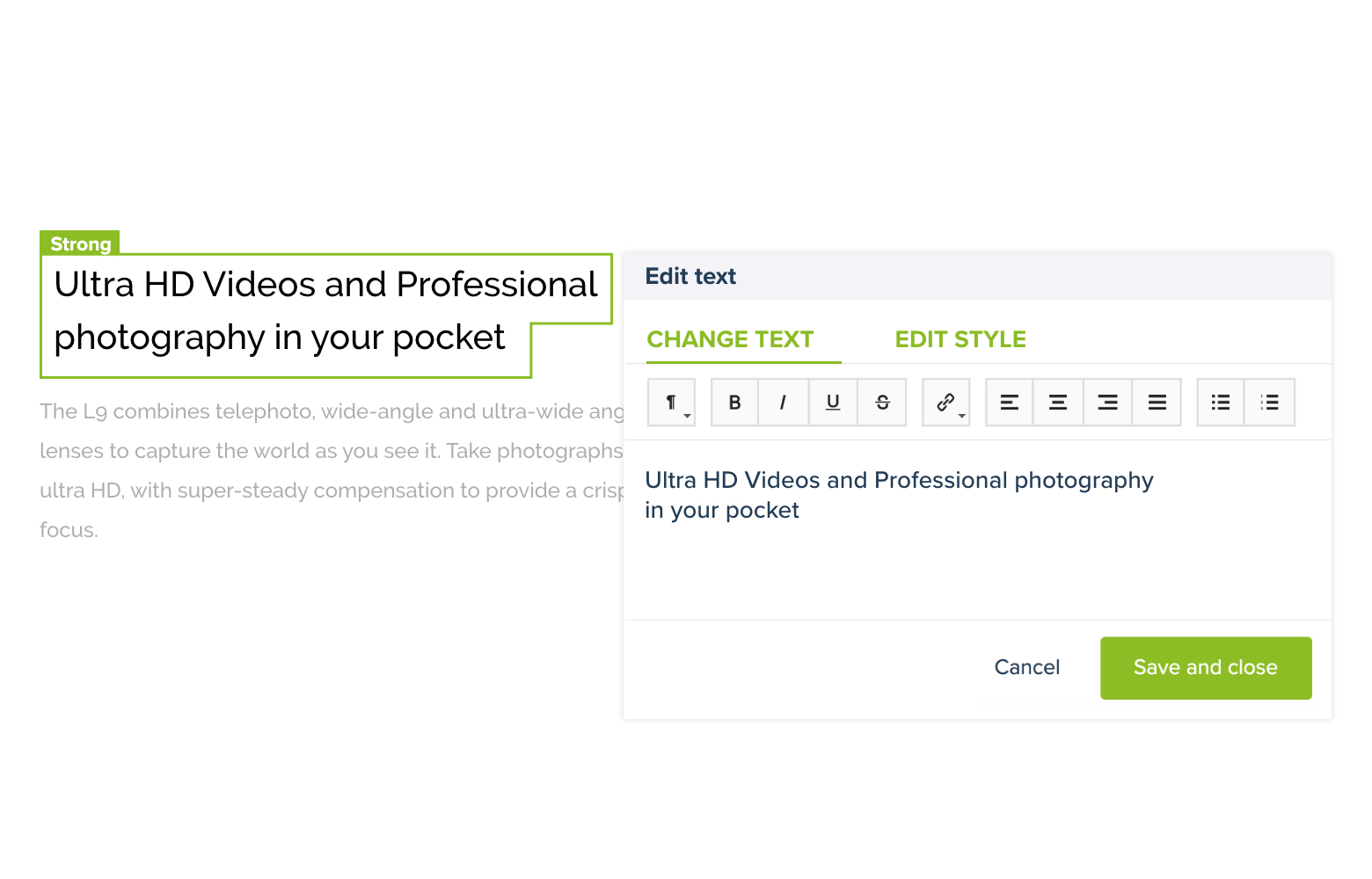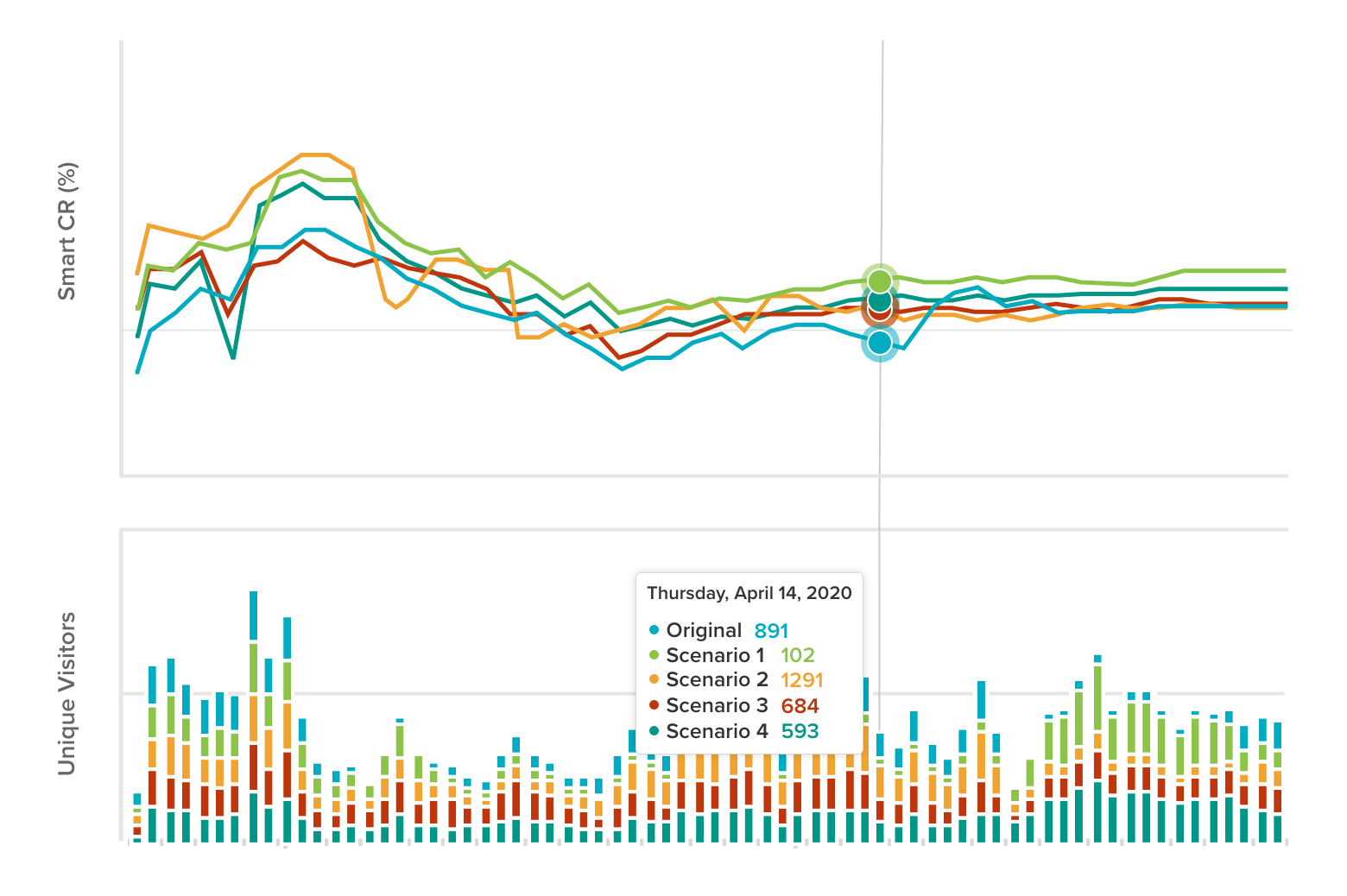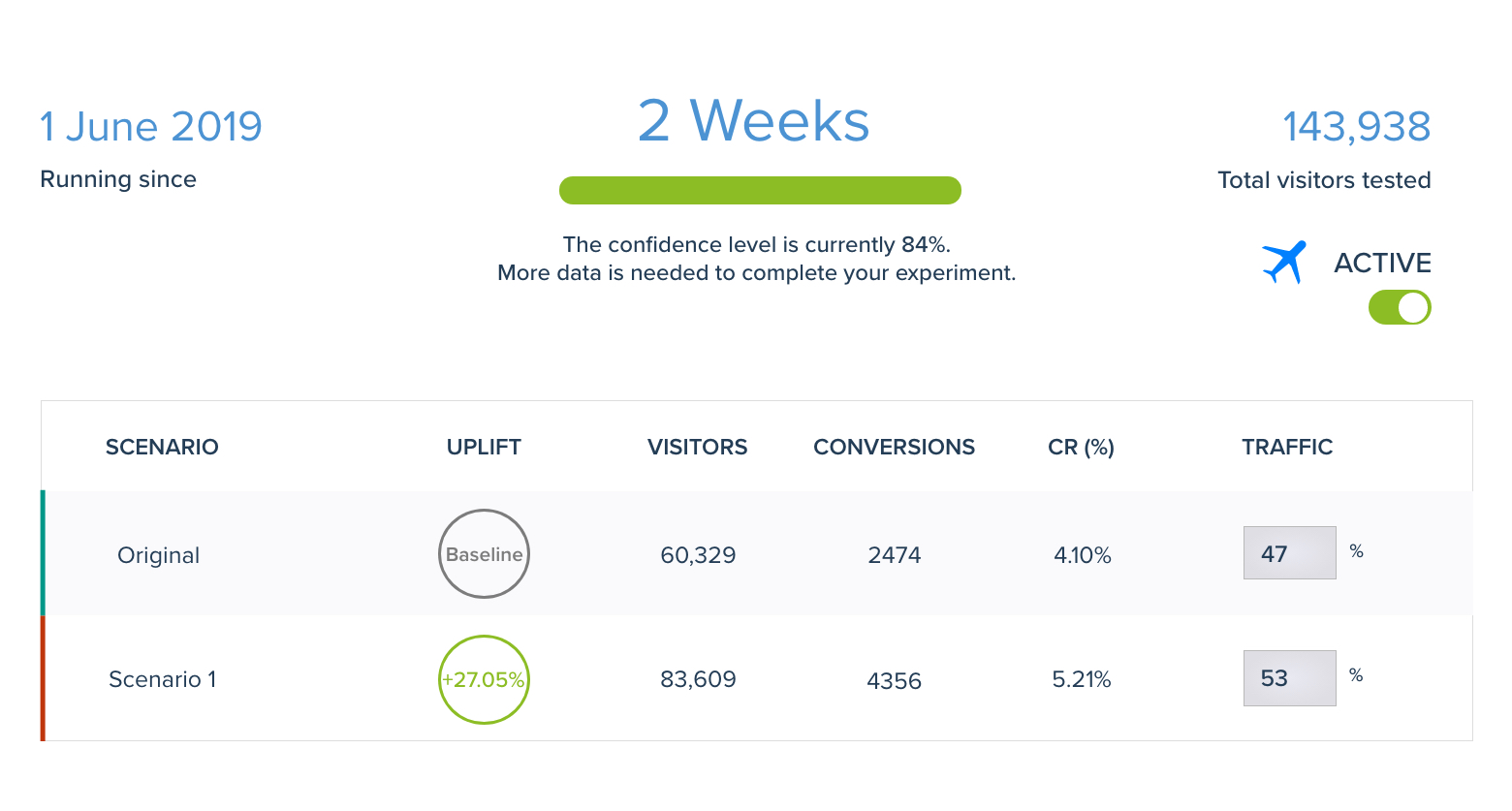How To Do A/B Testing With Zero Code
People often ask if it is possible to do A/B testing without a developer. Convertize has been designed so that anyone can test their online content, without the need for coding or support. This step-by-step guide shows you exactly how to do A/B testing without touching a line of code.
How To Do A/B Testing With Zero Coding
- Step 1: Create A Hypothesis
- Step 2: Edit Your Target Page
- Step 3: Decide On Your Settings
- Step 4: Know When To End Your Test
- Step 5: Make Sense Of Your Results
By testing your content, you can optimize your web content page-by-page. That’s why A/B testing is such a powerful tool for Conversion Rate Optimization.
Step 1: Create A Hypothesis
An A/B testing hypothesis is a theory about what will increase conversions on your webpage. For example, in 2009 the communications platform Highrise decided to test the headings and subheadings on their sign-up pages. Their hypothesis was that more people would sign-up if their title mentioned how easy it was. The test proved their hypothesis correct, increasing sign-ups by 30%. It also suggested new hypotheses for them to try.
If you are unsure about what to test, the best place to start is your analytics. You should focus on the pages which have the most visitors, as an uplift on these pages will have a larger impact. Google Analytics provides clear reports about which pages have the highest bounce rate, and which cause the most people to exit your site. It also shows you the most common page paths that lead to a conversion.
Creating An A/B Testing Hypothesis with Convertize
Convertize gives you a library of over 250+ proven A/B testing ideas to try, based on your page and your goals. That means it’s easy to create hypotheses, even if you haven’t done A/B testing before.

Step 2: Edit Your Target Page
In order to run an A/B test, you need to create an alternative version of your webpage. There are a few ways to edit your web content:
- Hiring a developer or agency
- Editing your code manually
- Using a CMS or page builder
- Using an A/B testing tool like Convertize.
An A/B testing tool provides you with a quick and easy way to edit your target page, so that you can test the new version against the original. That means you don’t waste hours creating unproven variations. It also means your whole marketing team can collaborate on an optimization project.
Editing Your Webpages With Convertize
The Smart Editor makes it much simpler to create alternative versions of your webpages. The Editor renders your page like a web browser would, but it also allows you to isolate and edit elements by clicking on them. You can then change text, images and design features in a few clicks. As long as the Convertize pixel is active on the page, your changes will be visible to a proportion of your visitors.

Step 3: Decide On Your Settings
Once you have created an alternative version of your original webpage, you need to decide how your traffic will be divided between them. Most A/B testing tools use a “Multi-Armed Bandit” algorithm, which manages your traffic actively whilst you test. By sending more visitors to your best-performing page, you can maximise conversions whilst you test.
More basic tools send a pre-defined proportion of your visitors to your alternative page and maintain this proportion throughout the test. In that case, you will have to decide in advance how to divide your traffic.
The Convertize Autopilot
The Autopilot feature that Convertize uses is a more responsive version of the traditional Multi-Armed Bandit. Not only does it adjust your traffic based on how your pages perform, but it gives more weight to recent conversions. That means it reacts faster to a sudden change in your page’s conversion rate.

Step 4: Know When To End Your Test
One of the advantages of using an A/B testing tool is that it will tell you when your results are reliable. However, in certain circumstances, you may decide to end the test early. For example, if the difference between your page variations is too small to produce a noticeable effect, you may want to try a different hypothesis rather than waiting for the test to reach significance.
Statistical Significance and Convertize
Throughout your experiment, Convertize shows you how significant your results are and how long your test will have to run to reach significance. That makes it easier for you to decide when to end a test. You can adjust the Confidence Level required for your test any point, although we do not recommend changing this setting during a test.

Step 5: Make Sense Of Your Results
When a test is complete you need to put the results in context. You also need to remember to make any substantial changes gradually, monitoring your KPIs. This is important, because even a successful and significant test can produce unexpected effects at another part of your conversion funnel.
Making Your Changes Permanent
By leaving Convertize active on your test pages, you can continue to display the original page to a small proportion of your traffic. That way, the Autopilot will continue to act as a safety net as you transition to a new design.